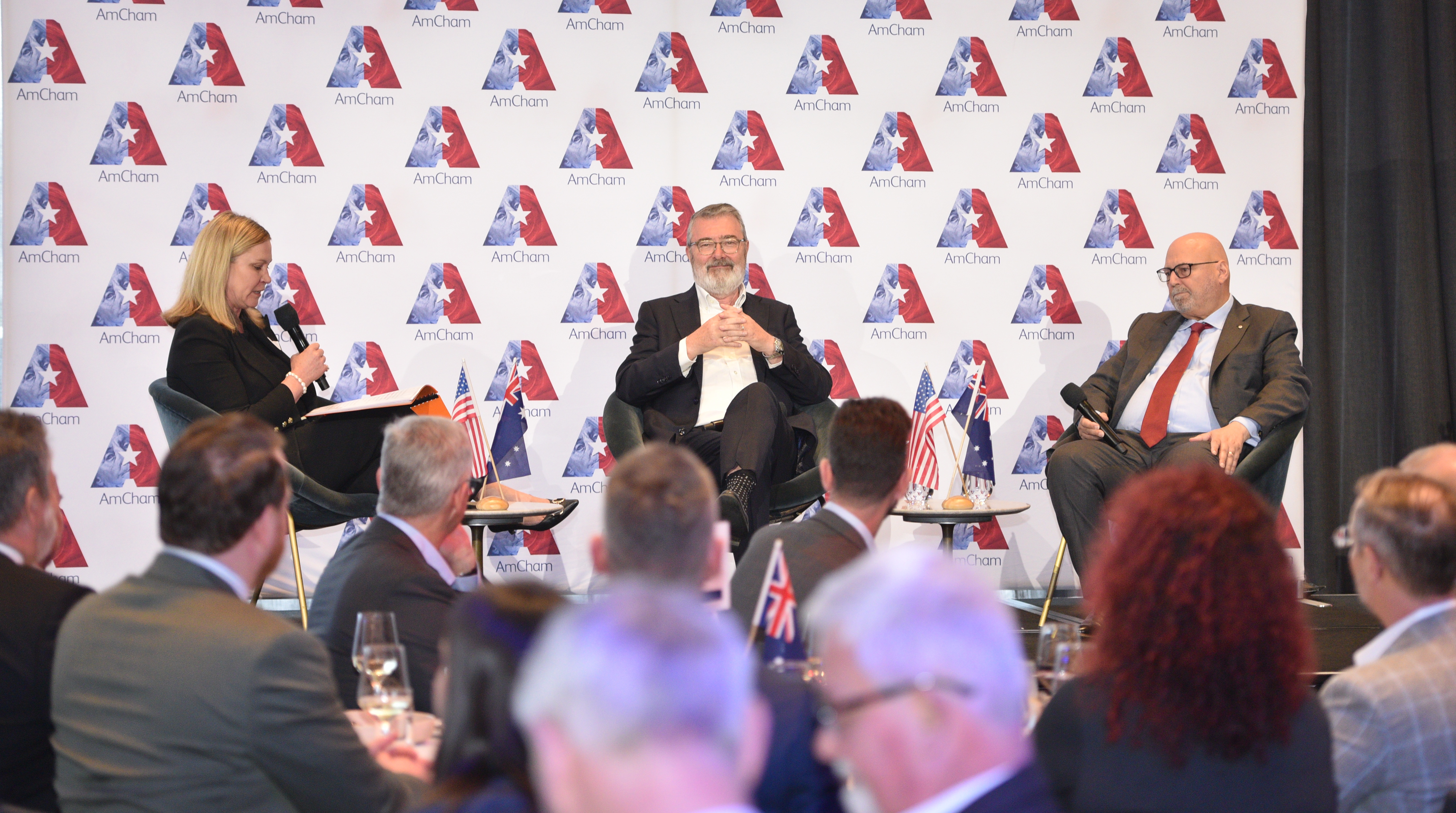SA defence leaders told how to deal with Trump
A former Australian ambassador to the United States was in Adelaide yesterday giving defence and government leaders his take on negotiating with the Trump administration.

Four years into the AUKUS defence alliance, United States Studies Centre chair Arthur Sinodinos told an American Chamber of Commerce in Australia event it was important to think deeply about dealing with a new, business-orientated leadership.
“Working with a White House like this one .. you have just got to be confident; you can’t curl yourself in a ball and wring your hands and say, ‘I’m not sure about all of this’. You go in there confident about what you’ve got to sell,” he said in Adelaide.
“Now our job is to make sure America first is not America only and that is by convincing them of the interest they have in strong alliances and in partnerships in the Indo-Pacific and how that feeds into their own security.
“It’s not so much about saying to them ‘we need you’, it’s about explaining to them why they need us.”
Sinodinos is a leading public policy and politics expert and as ambassador until 2023 was closely involved in Australia’s negotiations in establishing AUKUS – the Australian, United Kingdom and United States alliance underpinning the nation’s new nuclear-powered submarine program.
The alliance was announced by former US President Biden with former Australian Prime Minister Scott Morrisson and former UK Prime Minister Boris Johnson – President Donald Trump has since won the top job in the United States and the Australian Prime Minister has been yet to secure a face-to-face meeting on the vital national project.
You might like
Hopes were now pinned on next week’s United Nations General Assembly where the Prime Minister Anthony Albanese was expected to meet with President Trump on the sidelines.
“With a presidency like this one to some extent you have got to pack your normative views at the door strongly one way or the other,” Sinodinos said.

During The State of National Security discussion, Sinodinos said current federal leaders needed to remind Australians we are in an “era of what we call grey zone activity”.
“There’s a lot of things happening short of an actual hot war, systems being jammed, cyber hacks… the point being that we have to have that mindset (of defence preparation) not because we want to be alarmists but because (we need to give thought to) what do we do if this happens?”
“We are a lot more exposed than a lot of countries because we also have facilities here… and we are in the arena where the great power competition may well be at its sharpest between China and the US.”
Stay informed, daily
He said Australia wanted a “good relationship” with China but China wanted to push the US out of the Indo-Pacific region – Australia wanted the US to remain active.
“(Australia needs to) convince the Americans why it’s in their interest to be in the region as part of that counterbalance,” Sinodinos said.
“We have to be in the business of showing how our national interest and their national interest coincide on issues in the region.
“The other thing to remember about President Trump is he does want to avoid war.
“If someone did something on his watch it’s more likely he would react because he would feel like he was disrespected.”
Premier Peter Malinauskas returned from a United Kingdom trip on the weekend where he signed a memorandum of understanding with Rolls Royce – the company that has powered the Royal Navy’s nuclear submarines for more than 65 years.
The MOU formalised Rolls Royce’s commitment under AUKUS to collaborate on workforce development, skills training, and critical technologies to support South Australia’s growing defence sector in building a nuclear-powered submarine industry in SA under the pact.
“Delivering nuclear-powered submarines is undoubtedly in Australia’s national interest. But the AUKUS program is also undoubtedly of benefit to both the UK and US, who will be able to use Australian suppliers to strengthen their own submarine and shipbuilding supply chains,” Malinauskas said today about the trip.
“That presents an enormous opportunity for South Australian defence manufacturers, and that is what my trip to the UK was all about.
“I was pleased to be joined by the chief executives of a dozen leading South Australian defence firms to build their relationships with major defence manufacturers including BAE and Babcock. The delegation also attended a major global defence conference in DSEI, where we signed an agreement to partner with Rolls Royce.”









